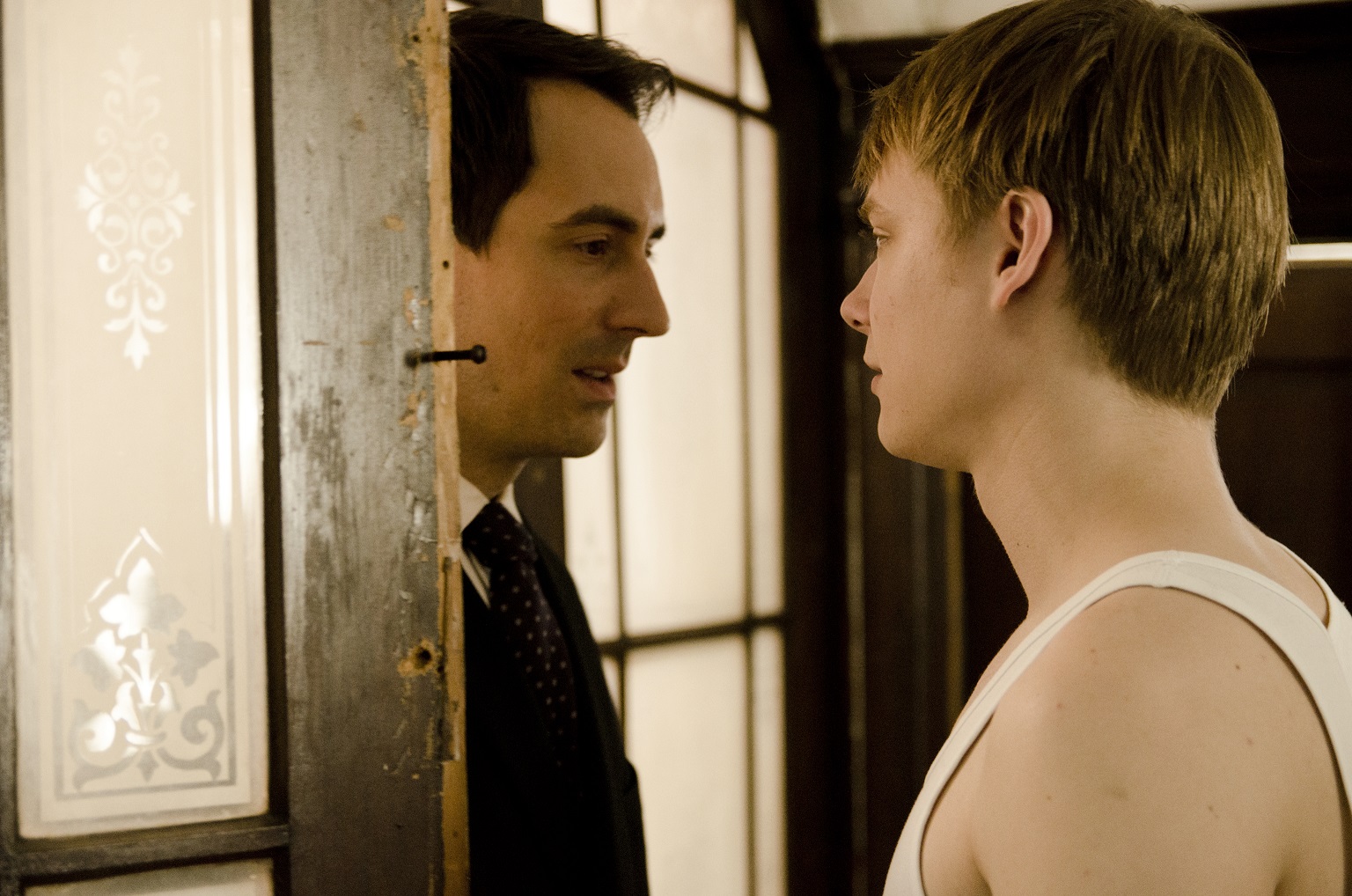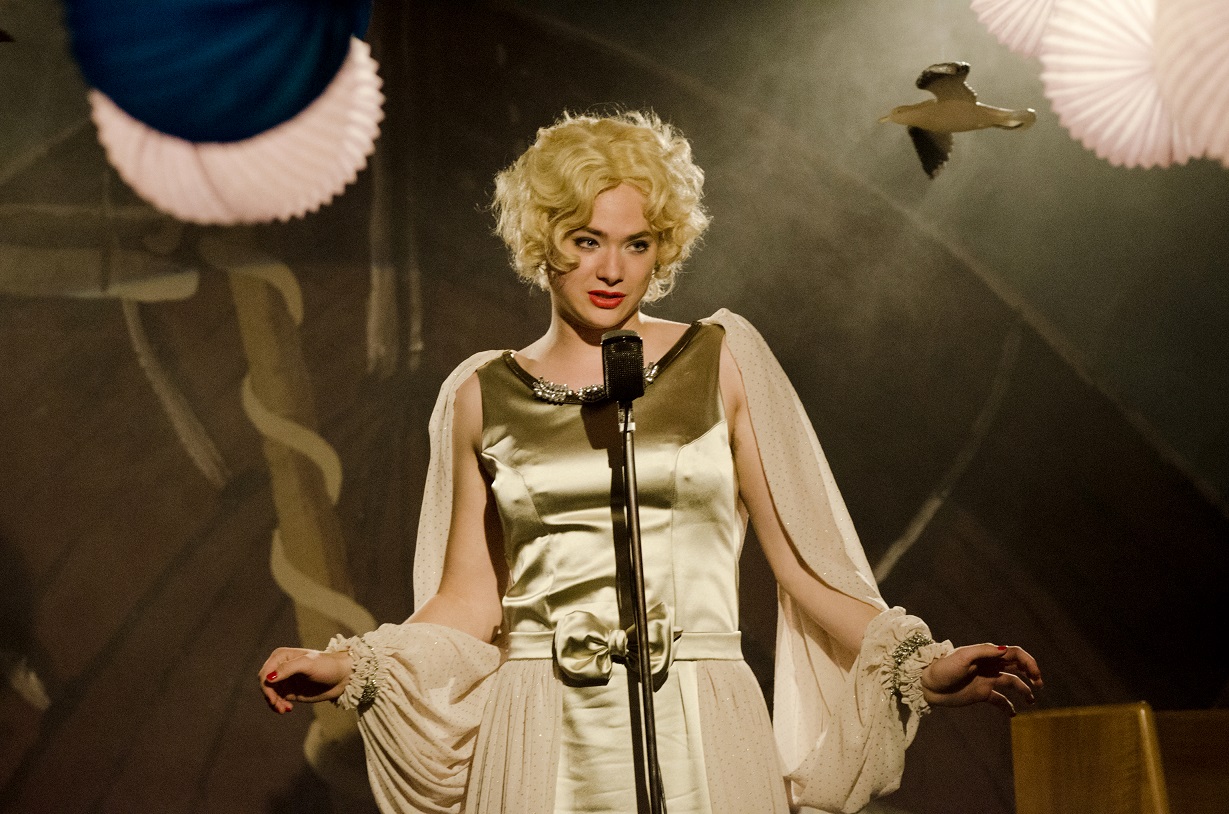Remembering the early years of social and sexual liberation in Swiss gay life, Stefan Haupt’s drama-documentary The Circle (Der Kreis) has rich affection for its subject. In particular, that’s the relationship between teacher Ernst Ostertag and drag artist Robi Rapp, who first met in the Fifties and have been partners ever since. Both now in their eighties, their documentary remembrances of the time are intercut with staged dramatic material concerning Haupt’s wider subject, the world that grew up around the magazine, social centre and club of the film’s title.
Switzerland was unusually liberal in its legislation which was passed far earlier than in other countries of Europe, with the 1942 penal code effectively legalising adult homosexuality. After the rise of the Nazis in Germany, Zurich took over from Berlin as the most progressive city in Europe for gay life. As well as social venues, there were concerted attempts to give the movement an identity, including through publishing magazines: the first such publication was initiated in 1932, and renamed ten years later “Der Kreis” – it was a trilingual publication, with sections in English and French – by its new editor Karl Meier.
The English section was always more risqué, given the Swiss censors were less fluent in that language
It’s Meier who presides over the environment (the story of The Circle begins in 1956) which Ernst enters as a shy but principled school teacher, initially helping with administrative tasks, like sending out the regular magazine, in plain envelopes, of course: at its height Der Kreis had a circulation of around 2,000, with about 800 copies going to subscribers outside Switzerland. (It’s a nice thought that the other clandestine Zurich publishing house that comes to mind was that organized by Lenin half a century or so earlier.)
The magazine’s other sphere of activity was to organize costume balls, held behind secure doors, at which members and friends dressed up for the occasion (main picture, above). When Der Kreis marked its 25th anniversary in 1957, more than 800 guests came along for what was then one of the “only gay mega-events in the world”; it certainly brings home how much times have changed since.
 It’s at one such party that Ernst meets 18-year-old Robi, who’s performing in drag (they’re played by Matthias Hungerbuehler and Sven Schelker, pictured, right, respectively in the dramatic reconstruct-ions); one of director Haupt’s very nicest touches is to have his film open and close with modern-day scenes of Robi, a twinkle still in his eye, performing the same number that we will hear his dramatic counterpart croon (pictured, below left) back in the Fifties.
It’s at one such party that Ernst meets 18-year-old Robi, who’s performing in drag (they’re played by Matthias Hungerbuehler and Sven Schelker, pictured, right, respectively in the dramatic reconstruct-ions); one of director Haupt’s very nicest touches is to have his film open and close with modern-day scenes of Robi, a twinkle still in his eye, performing the same number that we will hear his dramatic counterpart croon (pictured, below left) back in the Fifties.
Their relationship developed and endured, even if the couple admit in late scenes that their partnership was “lucky to survive”, as well as that they were “so used to hiding”. For all the seeming freedom of those early years, a degree of concealment within remained essential: Ernst is repeatedly reminded that he has yet to receive the teaching certificate that would give him security in the job regardless of his private life (that’s until he encounters his headmaster at one of the Circle gatherings: the latter’s pretext to his wife for such absences is that he’s been bowling, and it’s a plot strand that gives the film’s final scenes a tragic accent).

Such relative double standards would indirectly prove the end of Der Kreis. A series of murders of gay men in the 1960s meant that the police, until then content with a hands-off approach, restricted the organisation’s social activities, while the Zurich press published its until-then secret address. At the same time growing liberalisation elsewhere in Europe, Denmark and Holland especially, saw the appearance of new publications that were more progressive than the rather elegant and serious Zurich magazine, made up as it was of sometimes erudite prose and artistic photography (there’s a lovey anecdote about how the English section was always more risqué, given that the Swiss censors were less fluent in that language).
So the magazine, and the group associated with it, formally closed in 1967. Stefan Haupt’s film, which won the documentary Teddy award at this year’s Berlinale, has real warmth both in its portrayal of the world back then, and the testimonies of those interviewed in the present day. Ernst and Robi became the first gay couple in Switzerland to register their partnership, in a scene which we see in the film, which is a both testament to a relationship that has truly lasted, and a tribute to a group of individuals who were real direction-setters for the international gay movement.
Overleaf: watch the trailer for The Circle















Add comment